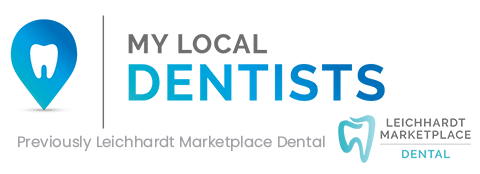Severe Tooth Pain After Extraction – Is It Normal For A Dental Emergency?

While it’s typical to experience discomfort after a tooth is removed, severe tooth pain after extraction is not normal.
Throbbing pain during the first 24 hours after your tooth extraction is likely to be just a sign that your body is healing, and this type of tooth extraction pain should respond well to any over-the-counter or prescription medicines. But when does your pain necessitate seeing an emergency dentist? Let’s take a look.
The Body’s Response to a Tooth Extraction
After tooth extraction, pain typically begins to set in once the dental anaesthetic wears off, which means the pain worsens. Symptoms peak around 24 hours before they start to ease.
The body considers a tooth extraction trauma, and its pain receptors recognise the damage and message the brain that there is an injury.
This recognition initiates a course of actions that the body initiates, such as swelling to protect the area from further injury and releasing chemical endorphins to relieve pain.
A throbbing pain is not unusual during the first 24 hours, followed by stiffness, swelling, and soreness for around a week. Severe or excruciating pain should not occur following a tooth extraction.
Causes of Severe Tooth Pain After Extraction
Dry Sockets
A dry socket is a painful condition that can occur after tooth extraction. The condition is caused by losing the blood clot that generally forms in the socket after tooth extraction.
When this happens, the bone and nerves in the socket are exposed, which can lead to pain and discomfort. A dry socket is a relatively common complication. Still, you should make an appointment with an emergency dentist to remove any bacteria or food particles and pack the area with gel, paste or a dressing.
To prevent the loss of a blood clot following extraction, patients should avoid the site area when brushing their teeth for the first few days after the extraction. They should also refrain from drinking through a straw as the sucking motion can cause the clot to loosen.
Infection
Although tooth extraction involves discomfort and swelling, continual bleeding, fever, and redness may indicate an infected area.
Infection typically develops within a few days of the extraction, but it can also occur 3 or 4 weeks later, so be on the lookout for lingering symptoms or unusual pain.
Sinus Cavity Infection
Severe tooth pain after extraction may also indicate a sinus infection, which can occur after tooth extraction involving the upper molars. Because the upper molar tooth roots are close to the maxillary sinus, the thin membrane that separates them can sometimes rupture during extraction, resulting in sinus perforation that can lead to bacterial infection.
Treatment typically involves antibiotics, so you may have to contact an emergency dentist to receive the treatment and clear the infection. Once the infection has cleared, repair work will also have to be done.
To lessen the risk of sinus exposure, the dentist or oral surgeon will examine the patient’s X-ray to pinpoint the location of the maxillary sinus and other important anatomical structures so that they can be avoided during surgical extraction.

Managing Pain and Anxiety After Extraction
Here are some steps to manage both the physical discomfort and emotional stress following a tooth extraction:
1. Follow Post-Extraction Instructions
Adhering to your Leichhardt dentist’s aftercare instructions is essential for a smooth recovery. This includes avoiding smoking, alcohol, and strenuous activities for the first 24-48 hours.
Proper hygiene practices, like rinsing gently with warm salt water, can also prevent infections.
2. Use Pain Management Techniques
Ibuprofen and other over-the-counter painkillers can help ease mild to moderate discomfort.
For severe pain, your Leichhardt dentist may prescribe stronger medicines. Additionally, ice packs help numb the area and lessen swelling.
3. Address Your Dental Fear
If anxiety about your recovery is affecting your well-being, consider stress-reducing techniques such as deep breathing exercises or mindfulness practices.
Sedation solutions help you unwind during follow-up appointments at many dentist offices.
4. Know When to Seek Help
It is crucial to recognise the signs of a potential complication. Severe pain, persistent bleeding, fever, or unusual swelling should not be ignored.
Contact an emergency dentist immediately to address these issues and prevent further complications.
The Bottom Line
Following your tooth extraction, it’s a good idea to have a check-up with us so we can check the socket to ensure it is healing well. It’s also wise to follow hygiene and aftercare instructions to prevent infection.
Getting teeth pulled may worry you, but it isn’t as bad as you imagine. We carefully ensure the experience is as safe and comfortable as possible.
Tooth Extraction Aftercare in Leichhardt
Severe tooth pain after extraction is not typical, and you should schedule an appointment with an emergency dentist as soon as possible at My Local Dentists by calling us on (02) 9171 0840 or request your appointment online.
Visit us at Shop 48, Leichhardt Marketplace Shopping Centre, 122-138 Flood Street in Leichhardt.

